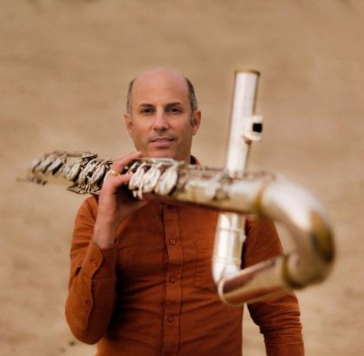Het SaP-initiatief (Student as Partners) bij Inholland beoogt de relatie tussen studenten en docenten te versterken door partnerschap te stimuleren in het onderwijsproces. Dit houdt in dat studenten actief betrokken worden bij curriculumontwikkeling en andere onderwijs gerelateerde besluitvorming. Dit project heeft een methode en diverse instrumenten ontwikkeld, zoals de SaP-radar, om de dialoog te bevorderen en verbeteringen in het onderwijs aan te moedigen. Door middel van workshops zijn waardevolle inzichten verkregen, zoals het belang van gelijkwaardigheid, flexibiliteit, en open dialoog tussen studenten en docenten. De SaP-radar methode heeft ook onverwachte aspecten blootgelegd, zoals de discrepantie tussen verbale en non-verbale communicatie en de uitdagingen rond machtsbalans en afhankelijkheid. Het project benadrukt de noodzaak van continue evaluatie, feedback, en training om effectief partnerschap te bereiken.

Binnen de begrippen Student Engagement, studentparticipatie en Students as Partners (SAP) komt de betrokkenheid van studenten aan bod. Met deze infosheet leggen we deze begrippen en de verschillen ertussen beknopt uit.

Dit magazine, gevuld door leden van het Inholland Consortium NPO, belicht het essentiële thema van studentenwelzijn en binding. Door de lens van actuele projecten zoals de Studentenwelzijnsmonitor en de SaP-radar (voor de inzet van Students as Partners) tot initiatieven voor inclusieve Studentsucces Centra, biedt dit magazine een diepgaande kijk op hoe we het welzijn en de binding van onze studenten kunnen versterken. Het benadrukt het belang van een gemeenschap waarin elke student zich gewaardeerd, gehoord en onder- steund voelt.
MULTIFILE

Students in Higher Music Education (HME) are not facilitated to develop both their artistic and academic musical competences. Conservatoires (professional education, or ‘HBO’) traditionally foster the development of musical craftsmanship, while university musicology departments (academic education, or ‘WO’) promote broader perspectives on music’s place in society. All the while, music professionals are increasingly required to combine musical and scholarly knowledge. Indeed, musicianship is more than performance, and musicology more than reflection—a robust musical practice requires people who are versed in both domains. It’s time our education mirrors this blended profession. This proposal entails collaborative projects between a conservatory and a university in two cities where musical performance and musicology equally thrive: Amsterdam (Conservatory and University of Amsterdam) and Utrecht (HKU Utrechts Conservatorium and Utrecht University). Each project will pilot a joint program of study, combining existing modules with newly developed ones. The feasibility of joint degrees will be explored: a combined bachelor’s degree in Amsterdam; and a combined master’s degree in Utrecht. The full innovation process will be translated to a transferable infrastructural model. For 125 students it will fuse praxis-based musical knowledge and skills, practice-led research and academic training. Beyond this, the partners will also use the Comenius funds as a springboard for collaboration between the two cities to enrich their respective BA and MA programs. In the end, the programme will diversify the educational possibilities for students of music in the Netherlands, and thereby increase their professional opportunities in today’s job market.

Aeres University of Applied Sciences has placed internationalisation as a key driver in its overall strategy. By prioritising the internationalisation of education and educational consultancy the university has created solid opportunities for students, lecturers, and partners at regional, national, and international levels. Currently, more strategic development on internationalisation in applied research at Aeres is needed. There is an opportunity to utilise highly proficient researchers, state-of-the-art facilities, and an impressive national research portfolio, and for this, there is a need to develop international research agenda, a key priority for AeresResearch4EU. To address this need, Aeres University of Applied Sciences aims to strengthen its internationalisation efforts with its research activities, opening the door to many opportunities, and most importantly, creating an international research agenda spanning the university's three locations. The main objectives of AeresResearch4EU are to analyse the existing research strategy and professorships and develop them towards a global research agenda for the European Union. By focusing on international research projects, Aeres can further enhance its reputation as a leading institution for applied research in agriculture, food, environment, and green technologies. AeresResearch4EU aims to create new partnerships and collaborations with researchers and institutions across Europe, allowing Aeres to contribute to developing innovative and sustainable solutions to global challenges. With its strong commitment to internationalisation and its focus on applied research, Aeres University of Applied Sciences is poised to become an essential player in the European research landscape.
The European creative visual industry is undergoing rapid technological development, demanding solid initiatives to maintain a competitive position in the marketplace. AVENUE, a pan-European network of Centres of Vocational Excellence, addresses this need through a collaboration of five independent significant ecosystems, each with a smart specialisation. AVENUE will conduct qualified industry-relevant research to assess, analyse, and conclude on the immediate need for professional training and educational development. The primary objective of AVENUE is to present opportunities for immediate professional and vocational training, while innovating teaching and learning methods in formal education, to empower students and professionals in content creation, entrepreneurship, and innovation, while supporting sustainability and healthy working environments. AVENUE will result in a systematised upgrade of workforce to address the demand for new skills arising from rapid technological development. Additionally, it will transform the formal education within the five participating VETs, making them able to transition from traditional artistic education to delivering skills, mindsets and technological competencies demanded by a commercial market. AVENUE facilitates mobility, networking and introduces a wide range of training formats that enable effective training within and across the five ecosystems. A significant portion of the online training is Open Access, allowing professionals from across Europe to upgrade their skills in various processes and disciplines. The result of AVENUE will be a deep-rooted partnership between five strong ecosystems, collaborating to elevate the European industry. More than 2000 professionals, employees, students, and young talents will benefit from relevant and immediate upgrading of competencies and skills, ensuring that the five European ecosystems remain at the forefront of innovation and competitiveness in the creative visual industry.